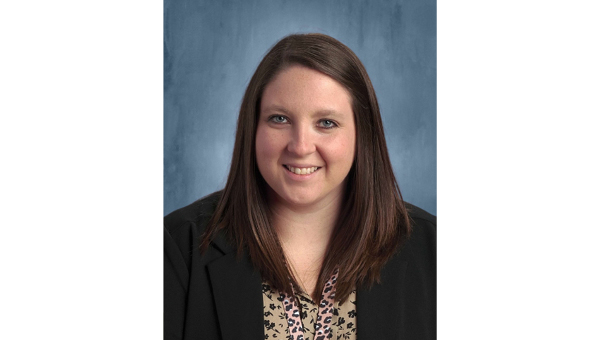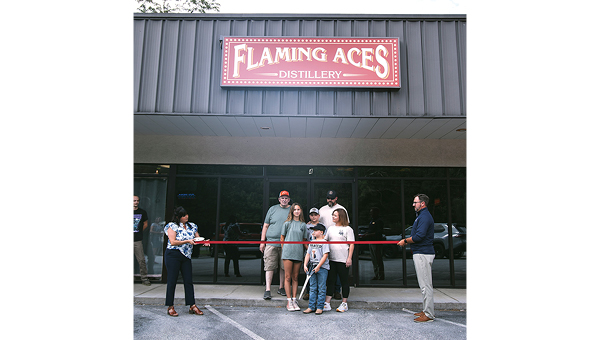What it means to do the work of freedom now
Published 1:53 pm Tuesday, November 19, 2024
|
Getting your Trinity Audio player ready...
|
BY ANDREW MOSS
When conceding the presidential election to Donald Trump, Kamala Harris told supporters gathered at Howard University that they needed to keep up the fight for freedom. She said, “the fight for our freedom will take hard work. But . . . we like hard work. Hard work is good work. Hard work can be joyful work.”
Speaking this way, Harris left a clue as to why voters rejected her candidacy so resoundingly. Donald Trump didn’t exhort his followers to take on the hard work of democracy. Instead, he lifted up the image of the strong leader, a savior of the people, telling them eight years ago, “I am your voice,” and “nobody knows the system better than me, which is why I alone can fix it.”
Trending
As evangelical Christians began describing him this year as anointed by God, he chimed in with his own take, particularly after the attempt on his life in Butler, Pennsylvania: “I would like to think that God saved me for a purpose, and that’s to make our country greater than ever before.”
Over time, Trump and his most ardent followers evolved a relationship of dominance and submission, a relationship (to borrow loosely from psychoanalyst and social philosopher Erich Fromm) known as “escape from freedom.” Besieged by insecurities aroused by bewildering economic, technological, cultural, and demographic changes, they found relief in the words and actions of a man they view as their champion: a man willing to terminate the Constitution and to exact retribution from his enemies.
These followers willingly submitted to the dark sides of the strong man’s domination. Waving signs saying, “Mass Deportation Now,” they, too, came to participate in dominating others: vilifying and bullying the most vulnerable in the society. Still, they’ve done so only in submission to the strong man above them.
Less ardent voters also turned out for Trump. Citing inflation, or, more generally, the economy, they looked away from the cruelty and irrationality of mass deportation, the inflationary implications of Trump’s tariff proposals, the threats to the long-term funding of Social Security, and the environmental implications of pandering to the fossil fuel industry. They didn’t wave signs endorsing deportation, but they couldn’t yet see, or want to see, the 3.2 million Americans who’ve had to leave their homes because of climate-change related flooding. They weren’t willing or able to draw links between an increasing internal migration and the Trump-endorsed policies that will accelerate it. Theirs is a resigned acceptance.
And then there are those who didn’t turn out all: the 89 million people eligible to vote who simply sat it out. Some did so for specific reasons, e.g., the Biden-Harris administration’s military support for Israel’s war in Gaza. Others have explained their non-participation in personal terms: “I just don’t see the impact [of voting] on my life.” And then there are those who’ve simply lost faith in the political system: an outcome that Donald Trump and his allies helped advance with a steady torrent of lies and election denialism.
When America’s non-voting electorate exceeds the entire population of Germany, we’re facing a social malaise more extensive than any Democratic Party post-election autopsy can address. We will need a broad mobilization of all sectors of civil society, not only to counter Trump’s immediate threats to human rights, the environment, and democratic institutions, but also to undertake the longer-term work of understanding and re-engaging the millions of people who’ve dropped out. These civic sectors must be represented by leaders and citizens from a wide spectrum: human rights and environmental groups, faith and media organizations, labor, business and non-profit groups and associations, education institutions, and philanthropic groups.
Trending
All this, in large measure, is the work of freedom. But there’s a dimension of this work that needs special consideration, and that’s the role of organized labor.
Union households voted for Kamala Harris by a margin of 55 to 43 percent over Donald Trump, according to exit polling. If union membership were the same as it was in the 1950s – approximately one in three workers, instead of one in 10 (as it is today) – Kamala Harris may well be selecting her cabinet now.
Union members do the hard work of organizing workers and building solidarity, countering the adverse, often hostile pressures from corporate employers. Fighting for collective bargaining to ensure fair compensation and decent working conditions, unions resist the atomization and alienation that can tempt so many isolated individuals into escapes from freedom – particularly escapes into the smothering embrace of the strong man.
The work to protect and advance unions and workers – to protect and advance human rights and dignity: this is the difficult work of freedom that lies ahead.
(Andrew Moss writes on politics, labor, and nonviolence from Los Angeles. He is an emeritus professor (Nonviolence Studies, English) from the California State University.)





